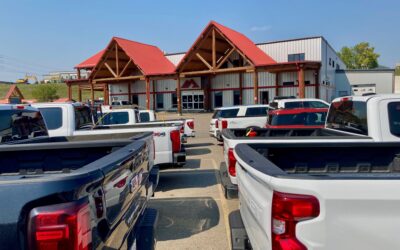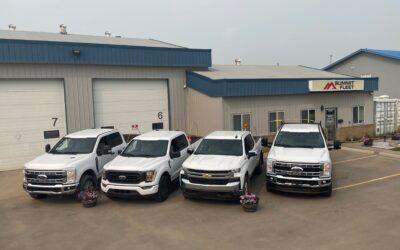How Government Fleets are Handling COVID-19
The COVID-19 pandemic has continued to spread across the US and fleet organizations countrywide are reacting to this immediate threat. Different state, city, and county fleets are trying their very best to curtail the spread of COVID-19 and prevent their employees from contracting the virus.
So, let’s explore how different government fleets are dealing with the COVID-19 crisis:
“Business as Usual” Halted at Ore. Utility
Compared to most American states, Oregon does not have as many cases of the novel coronavirus; it has confirmed 1,239 cases of COVID-19, as of 8th April. This is probably because the state took quick preventative and precautionary measures. For instance, Eugene prohibited public meetings and declared a state of emergency on 17th March to stop the spread of coronavirus.
According to Gary Lentsch CAFM, fleet manager, Eugene Water & Electric Board (EWEB) put a limit on unnecessary business travel. It also tried to keep the number of direct meetings and employee interactions to a bare minimum.
EWEB fleet management has actively encouraged fleet technicians to wear latex gloves when moving vehicles. It has also installed hand sanitizer dispensers on-site and kept spray disinfectant cans at every technician’s workstation. Moreover, it has ensured that technicians don’t head home in their work clothes.
To curtail the spread of the virus, day-to-day fleet operations are no longer running on a “business as usual” basis. New vehicles and all vehicle modifications have been put on hold. Additionally, the fleet has significantly curtailed the use of vehicles. This has led to a decrease in repair requests, fuel usage, and the availability of parts.
Furthermore, the fleet has reduced their work to only cater to critically-needed vehicles and outsource the residual workload. Here are some of the points and questions that Lentsch raised in his discussion about the virus on FleetShare:
- Fleet drivers need to wipe down all high-touch areas – steering wheels, door handles, gear shifters, etc. – with disinfectant wipes.
- In case an employee falls ill, the fleet manager should consider quarantining the drivers as well as the vehicles. In case they can’t quarantine the vehicle, they need to ensure it is thoroughly disinfected before using it.
- Whose responsibility will it be to disinfect the vehicles of employees who fell ill – the fleet staff’s, an outside contractors’, or an on-site handler’s?
- How are the vehicles supposed to be disinfected? To answer this question, EWEB bought super fine sprayers for their employees. These sprays clean every corner of the vehicle, which ensures proper cleaning.
- EWEB’s fleet technicians also spray the driver’s seat and area in the vehicle with a 70% isopropyl alcohol and 30% water solution before accessing it.
- In case a driver falls ill, the entire vehicle interior is sprayed and the technicians wait for 24 hours before using it.
- As for dire situations in which the driver is severely ill or there’s a risk of biohazard contamination, fleet managers are supposed to seek a qualified disinfectant company to clean the vehicles.
- Drivers are encouraged to use personal cars rather than carpooling to the worksite to reduce the risk of contamination.
NYC Issued Direction for Fleet Drivers
As of 8th April, New York City has had 80,204 confirmed COVID-19 cases! The city has taken quick action to close down all entertainment avenues, while restaurants and bars are only allowed to provide take-out food and delivery. Moreover, public gatherings with 50 or more individuals are banned and the state has urged people to not step out of their houses or travel unnecessarily. Additionally, all public schools have been closed. People of New York have also been instructed to work from home.
For those employees who are still going to their jobs, such as the Fire and Police Department personnel, DCAS has offered comprehensive directions on fleet vehicle use. This fact sheet, offered on 17th March, says that fleet drivers can continue with their daily routine, with certain added precautions.
- Drivers are urged to clean and disinfect their vehicles at least once a day with regular cleaning and disinfecting supplies. They are advised to specially clean high-touch surfaces such as armrests, door handles, seat belts, and the steering wheel.
- Drivers are also assured that they don’t need to invest in daily car washing, avoid public transportation or limit their routes within the city.
- They also don’t need to wear a face mask, unless they are feeling sick.
San Diego County Prioritized Mission-Critical Vehicles Only
In San Diego County, Calif., the total number of positive cases is 1,530 as of 8th April. The county has delivered thorough guidance on fighting the COVID-19 pandemic. It has prohibited a gathering of more than 50 individuals, closed all bars that only serve alcohol, encouraged drive-through, delivery, and pick-up services, and shut down all schools until further notice.
John Manring, chief of departmental operations for fleet, reported that the fleet operation is following the guidelines listed in the San Diego continuity of operations plan, which contains a pandemic section. Here are the precautionary measures that the San Diego County fleet staff is taking:
- The fleet staff is actively engaging in social distancing and operators have been told not to share their equipment and tools. As for the larger tools which need to be shared, the staff has been told to sanitize them with disinfectant wipes before using them.
- The fleet management has actively selected the mission-critical vehicles and instructed the technicians to prioritize their maintenance. They are instructed to complete maintenance on mission-critical vehicles and then move to preventative maintenance on other vehicles.
- The government fleets have also warned customers that fleet staff members might be allocated to different garages, based on the workload at each site. Additionally, they might shut down some garages, if there are not enough technicians available.
- As for cleaning and disinfecting the fleet vehicles, the employees are required to clean all high-touch areas with disinfectant wipes before starting and after finishing their work. As for the keys, they are to be disinfected with sprays.
- If the vehicles need additional thorough cleaning, the fleet unit has biohazard contractors on standby.
- Additionally, all fleet technicians have been urged to wear latex mechanic gloves while repairing the vehicles.
Furthermore, all fleet employees are instructed to wash their hands according to the standards set by the CDC. They have also been encouraged to use personal vehicles rather than sharing a ride. The San Diego County fleet is also keeping an eye on how the outbreak develops so that they can constantly adapt and adjust their response.
All in all, government fleets across the country are taking every precaution possible to ensure that they don’t become unwitting participants in the spread of the COVID-19 pandemic. This is the safest way to go, considering we still don’t know how long it will take for the coronavirus spread to die down completely.
Source:
https://www.government-fleet.com/353540/covid-19-fleet-response-ensuring-safety-in-the-shop-social-distancing-at-work






